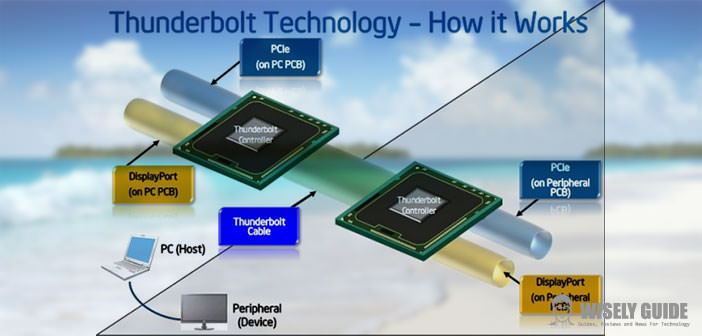Acer has decided to no longer want to offer systems equipped with Thunderbolt interface. The company believes that future versions of USB 3.0 will offer performance comparable to Thunderbolt but without having to deal with the limited compatibility with the high production cost for this technology.
Ruth Rosene, a spokesman for Acer, said: ” We are really focusing on USB 3.0, Thunderbolt is an excellent alternative. And less expensive, offers a bandwidth comparable, it can charge devices such as mobile phones and has an installed very broad base of accessories and peripherals. ”
Thunderbolt technology developed by Intel and promoted by the latter along with Apple, can transfer data at a speed of 10 Gb / s in both directions and at the same time, to connect monitors and displays. The next version of Thunderbolt 2, recently announced by Intel, will be able to provide speeds of 20 Gb/s. In contrast, the USB 3.0 technology has a maximum speed of 5 Gb/s while future versions will be permitted up to 10 Gb/s.
Although 10 Gb/s connection speed of 20 Gb/s can make much sense if you need to need to connect external storage devices based on SSD devices or audio/video production, for most of the devices is not absolutely bandwidths necessary. Furthermore, the implementation of Thunderbolt in a system or in a device requires the installation of the controller quite expensive. For this reason, the diffusion of technology Thunderbolt appears to be still relatively limited.
ntel says that the adoption of Thunderbolt is on the rise, which could mean that Acer will find itself in a situation where they cannot compete with other companies in meeting the needs of particular clients. Jason Ziller, Head of Client Connectivity Intel, said: ” The adoption of Thunderbolt on PCs is growing. There are more than a dozen new platforms based on Intel Core fourth generation already launched with Thunderbolt, including solutions from Lenovo, Dell, Asus and many others planned during 2013. Thunderbolt is targeted at premium systems. It is not intended to midrange systems or economic for the next couple of years. “

